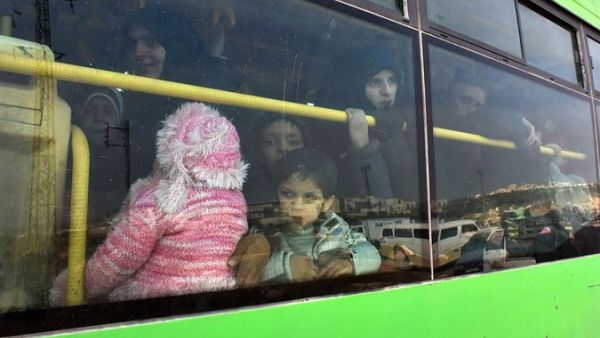Over the past few days the Syrian regime has made significant advancements into rebel-held eastern Aleppo, launching a ferocious ground assault and aerial bombardment in one of their biggest victories to date.
If Assad wrests control of the city, “the war is essentially over,” a US defense official told the Huffington Post earlier this year. So far, the pro-Assad coalition has gained control of more than a third of the rebel-held enclave. With the fate of Aleppo seemingly leaning towards a victory for the regime, does this mean the end of the Syrian conflict?
The significance of Aleppo
The attack on eastern Aleppo threatens to wipe out one of the most significant urban centers of the revoltion, and the capturing of the city will no doubt be a major turning point in Syria’s six-year civil war. However, it remains unclear exactly how much would change on a country-wide level.
While the fall of Aleppo will unlikely end the conflict, most agree that it will represent a substantial shift in status-quo between Assad and opposition forces. An Assad victory will be a huge blow to the rebels and reinforce the military capacity of the regime.
“The full encirclement of Aleppo City would fuel a humanitarian catastrophe, shatter opposition morale, fundamentally challenge Turkish strategic ambitions, and deny the opposition its most valuable bargaining chip before the international community,” the Washington based Institute of the Study of War predicted.
The opposition
However, the victory is unlikely to crush the opposition in its entirety. Syria’s rebels number around 150,000, according to the analyst Charles Lister’s book, The Syrian Jihad. With the total number of fighters in east Aleppo estimated to be around 8,000, that leaves around 142,000 rebels spread throughout the rest of the country. Idlib Provice, sizeable chunks of Quneitra and Daraa, alongside smaller enclaves, will remain in rebel hands. This suggests that while the rebels have conceded Aleppo city, the war will be far from over.
However, what could happen is that hard-line groups such as Jabhat Fatah Al Sham, who dominate the region, will gain increasing power. While a number of other rebel groups have been ideologically opposed to Jabhat Fatah Al Sham, as the importance of the Idlib fronts intensifies, it is likely that Jabhat Fatah Al Sham’s influence over these other factions will build as extremist and moderate forces merge together to oppose the imposition of the Syrian regime.
This would be bad news for the peace process, as international actors opposed to Assad would also reject Jabhat Fatah Al Sham’s role in the opposition.
Turkey
Alongside this, foreign intervention in support of the rebels, most notably in the form of Turkey, is key to rebel survival following Assad’s victory over Aleppo.
“When Aleppo falls, it’s likely that the government of Syria and Russia will move on to tackle Idlib, one of the last opposition strongholds,” one researcher, with contacts in Idlib province, told Al Bawaba.
“”It is unclear what Turkey’s role, if any, will be in aiding the northern province, as Turkey has already secured much of its border with the invasion of Syria through Operation Euphrates Shield. However, Erdogan’s dislike of Assad, recent claims that he will end Assad’s tyrannical rule, and the probability of a Kurdish/GoS alliance that could happen if the west forsakes the Kurds, could mean that Turkey would step in to help FSA in Idlib. This would be a way to ensure it has allies against a Kurdish state and semi-autonomous region, or at least a supply of soldiers to maintain the buffer zone established by Operation Euphrates Shield.”
Other forces
Alongside the rebels, the Syrian government still faces a number of opposing forces. Kurdish fighters, who have already started ruling autonomous areas, as well as Daesh, are still powerful in Syria. Given the various power dynamics at play in the Syrian conflict, it seems over simplistic to equate the fall of Aleppo to the end of the Syrian war. In fact, it seems far from over.








